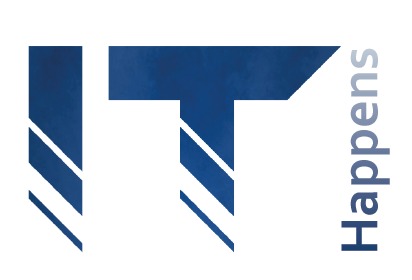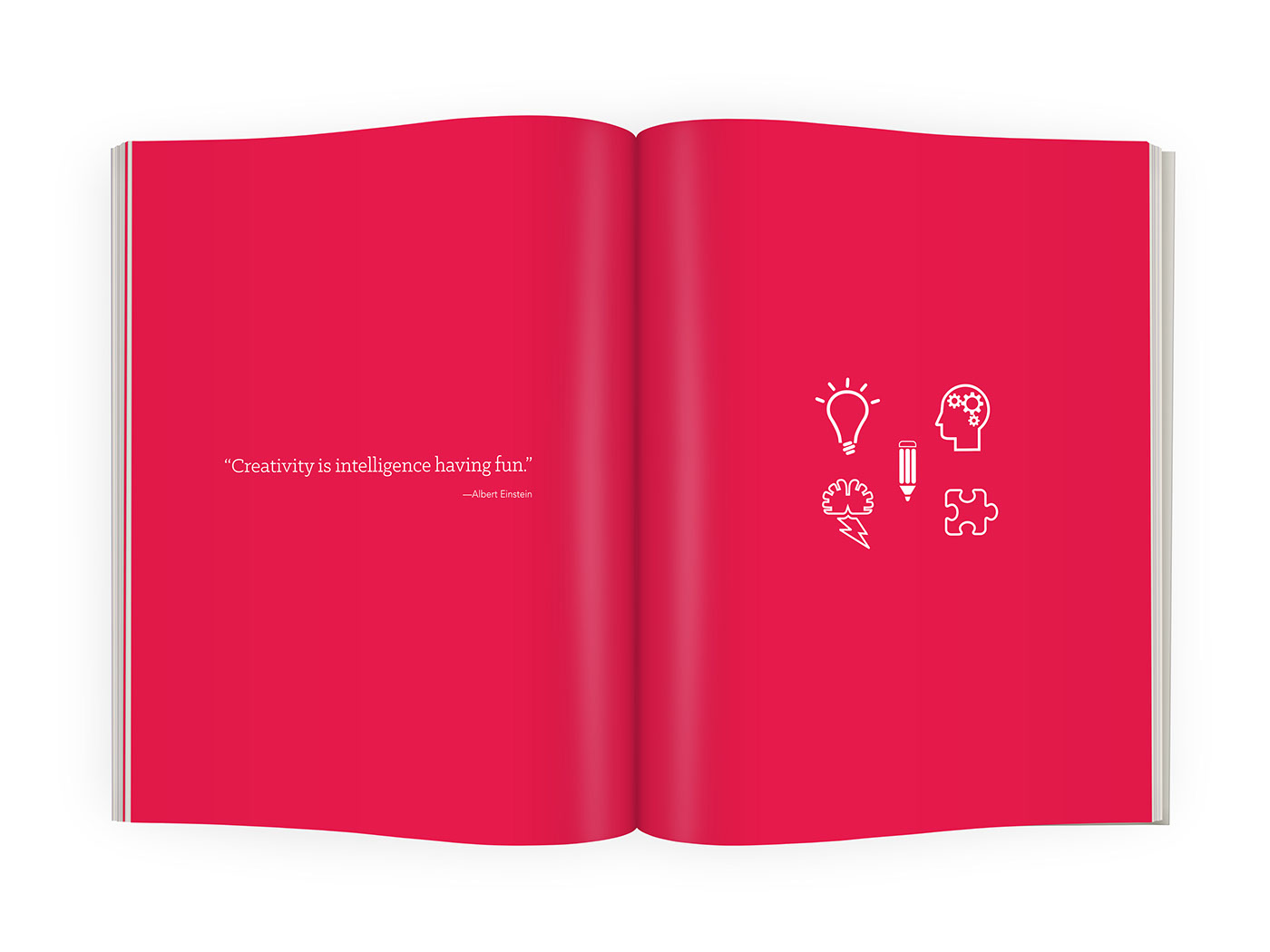Finding a thesis subject which suits your own interests as well as keeping the university satisfied can be quite hard. When you decide to combine writing your thesis with a company internship, this can become even harder since you will have to ‘serve two masters’. Within this article, tips & tricks for finding a suitable thesis subject for an Information Management (IM) master student as well as interesting topics and my own experiences will be covered.
The first steps: finding interesting topics
The first step to finding a suitable thesis subject is of course looking into what options there are. Different tips, as well as my own experiences, are discussed in this paragraph.
Think (back) about which courses you may like(d)
The first introduction with various subjects within IM will probably be during the (mandatory) or elective courses you have to complete in order to receive your ECTS. Looking at the course descriptions, and thoroughly reading what the course will be all about, is a good way to look into the (possible) subjects that may interest you.
For elective courses this is even more necessary, since choosing to do a course or not cuts down the different subjects the IM field covers within the master. Either looking back or reading about a certain course can be a great help in finding interesting thesis subjects.
To look into the course descriptions, as well as all information regarding the IM master, look at the dedicated website on the Tilburg University IM master webpage.
Talk to teachers from courses with certain professions
Every teacher at the university has done something related to the IM field, otherwise they wouldn’t have been at the place they are today. They all have a certain profession (at least somewhat) related to the course they teach, so talking to these teachers is a great way to find some inspiration for possible thesis subjects.
If you are not sure if following an elective course may suit your interests, you can always contact the teachers in person (either via E-mail or walking to their room at the Koopmans-building (the tall building connected to the Cobbenhagen building). Just make sure the teacher has some time ready or is at least not in a meeting or something similar.
Finally, reading about what research a teacher has done on a certain subject also gives a pretty clear indication of what interests that specific teacher has. Inspiration for your own thesis subject can be derived from research done by the teacher, or you could even discuss the content of the research.
Looking for staff of Tilburg University can be done on the University’s staff webpage.
Look at previous’ theses
Looking at previously finished IM-theses can be a great source of inspiration for your own thesis. You could read what the subject covered (and what not), what the follow-up research could be. This way, the subject could apply to your own setting so you could exploit this.
Attend (in)formal company activities
The study association SBIT (part of Asset) is dedicated to the master Information Management entirely. A lot of (in)formal events are held which you can (most of the time) attend for free. Events entail in-house company days, business drinks, even a four-course (free!) high-end business dinner is available. All these types of events give a clear distinction in the types of work a graduate IM-student could do. For myself, I decided to attend as much as possible of these formal events, since I could not only see which different types of work I could do but also looking into the several types of companies I could work at after graduating. Bonus points go to the (also often free) informal closings after a formal event with the study association where you can discuss the day as well as new insights about certain topics. I highly recommend joining (at least some) of these (in)formal activities for the reasons mentioned above.
You can look at the previous’ as well as the upcoming (in)formal events on the SBIT website.
Formal SBIT events: my experience
I mentioned doing almost all formal activities in the first half year of following the IM master. Some of the events I did, were as follows:
- Business data challenge
- Together with other students I was challenged to solve a case based on a data problem provided by an IM-suitable company;
- Business dinner
- A four-course luxurious (free!) dinner where I had the chance to talk to consultants, graduates and recruiters of several IM-companies. For each course, you changed tables to make sure you talk to different companies for each course;
- Business drink
- An evening where several companies introduce themselves in an elevator-style pitch and you talk to them in a speed-date concept afterwards whilst enjoying (again, free!) drinks and snacks;’
- Business tour
- A day where you will visit several (in my case, two) companies in one day, where (free…) lunch is provided as well as an informal closing. Within both companies, you get to know them better during an in-house tour as well as a company presentation, after which you will most probably work on a presented case.
- Economic Business Weeks Tilburg (EBT) and company days
- A lot of possibilities like doing a business lunch, solving a case, or just attending a company presentation of a company of interest are all possible.
- Inhouse days
- Visit a single company instead of two (in the case of the business tour), receive free lunch as well as an optional informal closing with just SBIT (dinner/drinks) and solve a case whilst also getting to know the company and its culture.
These are only some of the events I personally attended. Each year, these activities happen again, so be sure to keep a close watch on the SBIT website (or a better alternative: become an active member of SBIT so you don’t miss any news!).
Some photos of me attending these formal events are as follows:
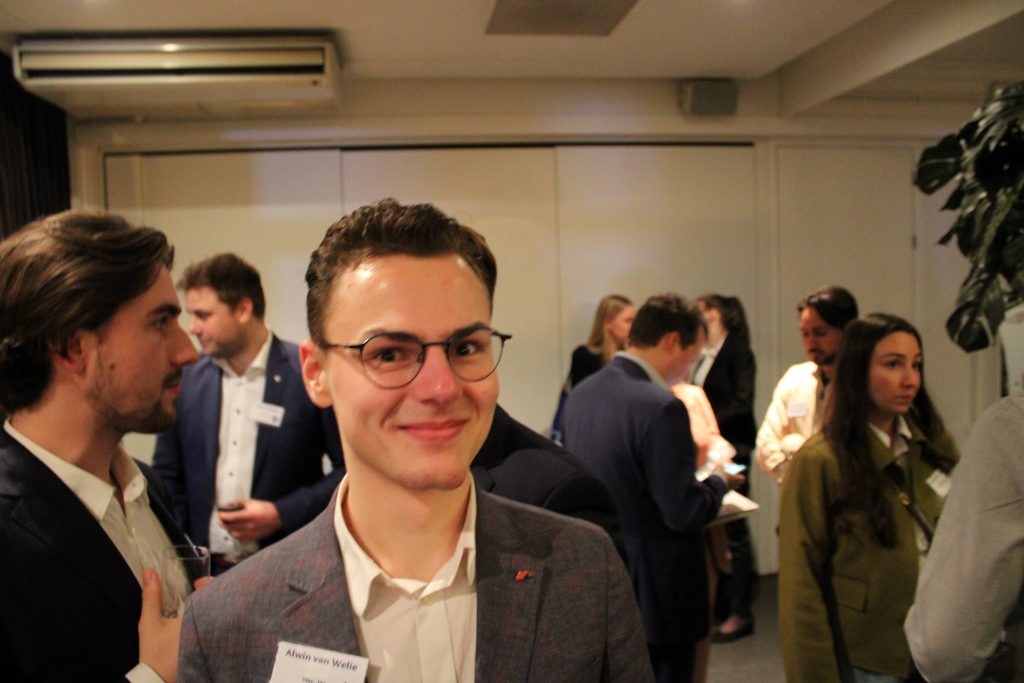
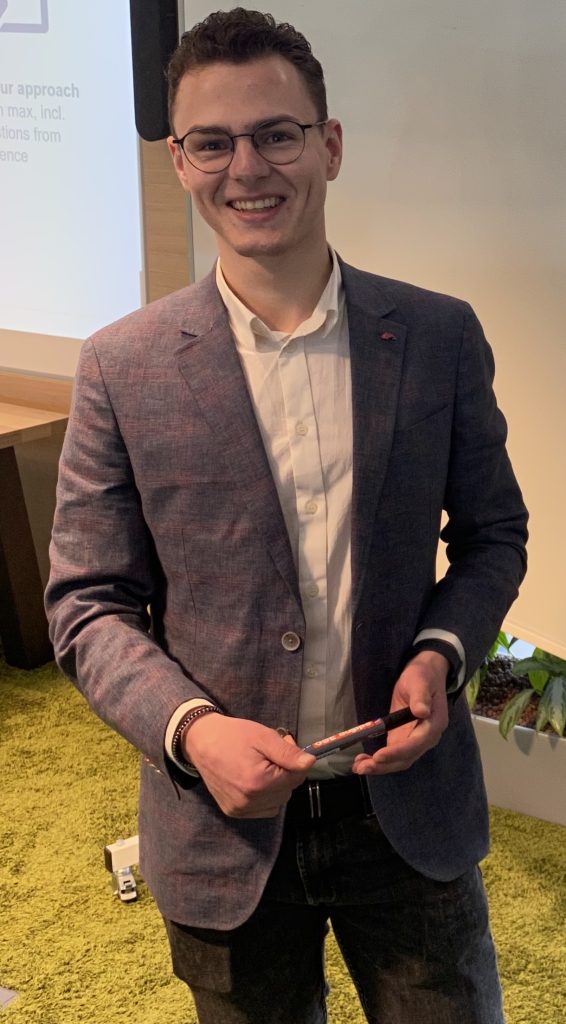
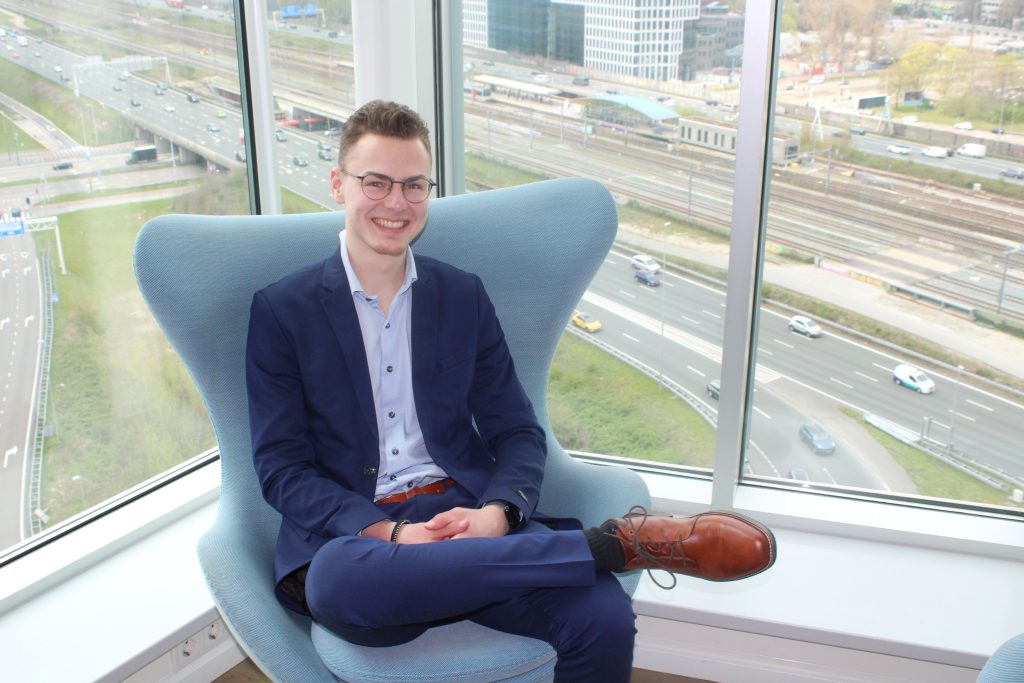
Formal SBIT events: follow-ups
Of course, next to being interesting and fun, these formal events also need to have some value to you. For me, I did some steps to make sure I maximized all potential value. I did the following after some of these events:
- I had a ‘no-obligations’ coffee talk at two companies.
I created a longlist in Excel with all companies I encountered during my master’s as well as the subjects they specialize in, where they are located, etc. Eventually, I came to a shortlist of only two companies. Since I had talked to both companies more than two times because of SBIT events, I decided to do a coffee talk (at the company’s place!) with one of the consultants of these companies.
Within these coffee talks, I asked a lot of specific questions on which I would later decide where I wanted to write my thesis at. I had already chosen to write my thesis for a company and not for the university, which is also something to choose for yourself. This is mentioned a little later in this article.
- I followed some advice from a consultant I encountered at one of the events.
At the business dinner, a consultant of a company I was talking with recommended a book called “the phoenix project” since I am interested in project- and change management (the people component). He told me to read the book, since it will have a lot of examples of project- and change management going wrong that could surely help me further working out my specific thesis subject.
I not only ended up reading the entire book, but also summarizing what happened within each chapter and listed the ‘lessons learned’ from the mistakes that were made. I tried to link these to several subjects I had already thought about to write my thesis about, which were a great inspiration.
If you are interested in the summary of this book, just reach out to me on my University e-mail address. I wrote this summary myself, and didn’t have it written down by ChatGPT, so an old-school summary could be coming your way.
Thesis subjects I (roughly) encountered during formal events as well as by following classes
Some of the subjects/types of work I encountered during my first half year of the IM master were the following (there are way more subjects):
- Consultancy work.
- Project management as well as change management is done within this profession;
- (IT) Audit work.
- Checking if a company complies to certain rules and finding things a company could improve on;
- RPA work.
- Robotic Process Automation is one of the main IT-trends already past its developing stage as more and more companies plug into this technology;
- AI work.
- Artificial Intelligence is not only booming with Large Language Models such as ChatGPT, but it also offers a lot of risks as well as challenges to look into;
- Business analyst work.
- Gathering requirements for a project, following methodologies such as Scrum or an Agile way of working could be part of doing this type of work;
- Crisis management work.
- Being a key information gatherer as well as being an intermediary for several crisis teams (for example: during or just after an earthquake or a volcano eruption) in different countries could be part of this type of work.
Of course, there are way more professions and tasks related to the IM-field that I haven’t discussed.
Talk with people from SBIT (study association of Asset)
Talking with members of SBIT is one of the best ways to find inspiration for your own thesis subject. Most members have probably been a member for a longer time than you have been studying IM, so they have often encountered a lot of subjects related to the IM-field which could be of use to you. Just walk into the SBIT rooms at any time and look who’s there. Everyone is open to talk to you or to refer you to someone to your specific interests.
Follow-ups: deciding to write for the university or for a company
As mentioned before, deciding to write your thesis for a company versus for the University both have its pros and cons. The university offers some meetings/events where these differences are discussed and explained, which I definitely recommend attending. My learned lessons were the following:
- Pros for writing for the University
- Since you are independent, gathering data and doing research is easier than whilst within a company. Within a company, you have rules to comply with, and possibly limitations to access to certain data because of regulations, laws or simply because it is not present.
- You are free to work from any place. Since you do not have any obligations or agreements with someone, you could ‘just do your research’ and not having to worry about ‘serving two masters’ as mentioned in the introduction of this article.
- Freedom in general. Not having any obligations offers flexibility in many ways. Just make sure you have agreements set with your supervisor within the University. Doing this type of research requires more independence and responsibility in how you work on your thesis.
- Cons in writing for the University
- You don’t receive any compensation. If (some) money is important to you, don’t write for the University since they will definitely not pay anything for you. Keep in kind that a compensation within a company differs from company to company; probable ranges are +-150 up to +-600 euros per month. These amounts are not set and should be agreed upon whilst finalizing your contract with your chosen company if this is the case.
- You will have ‘two masters to serve’. The company wants you do research which is useful for them to use, but the University wants research which is done in an academic way, on a master’s level. Companies could ask for research which may not be suitable to base a master’s thesis on, so be wary of this.
- You don’t have as much freedom on what you want to research as well as the amount and types of data you want to use within your research. As mentioned earlier, regulations, agreements or even availability of data play a role here.
- When you write for the University, you will need to go ‘job-hunting’ when you have graduated. Even though finding a job in the IM-field is not hard these days, staying at the company you drafted your thesis at is not uncommon at all, this happens more often than not.
It is therefore key to really think about which type of thesis writing suits your needs.
Follow-up key points: making agreements
After having found your thesis subject, you will have to finalize some things before starting. The most important ones are as follows:
- Finalizing your thesis subject with your internship company and/or University.
- What will your research be about, what time period, what is expected from you?
- Finding the variable which you will research.
- What variable will you research? Will you look into ‘the changing behaviour of people’ during experiment XYZ for example?
- Scoping down your research.
- What will your scope be? Make sure your scope is not too big; you only have a limited amount of time to finish what you proposed.
- Create a plan: schedule (roughly).
- Think of the (first) steps you will have to take, and clearly work this out in your thesis proposal. What steps will you be doing? For how long will you be doing this? What do you need to do this, do you for example need help from teachers or a certain type of data?
Final note
A final note on this article: the University is your friend, not your enemy! The University also wants you to graduate; they want to help wherever possible. However, note that you will have to do the actual work – be active & present.
